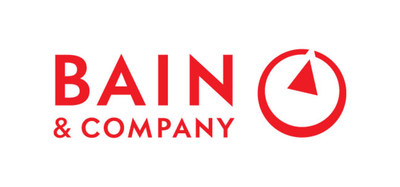Reconciling The Automation Paradox Between Hesitant Employers And Eager Employees
Press Releases
Oct 05, 2021
BOSTON, Oct. 5, 2021 /PRNewswire/ — Companies, across industries, are increasingly using automation technologies to improve their business processes or reinvent their organizations. However, reinventing a business through automation requires enlisting the entire organization, and many companies are still struggling to overcome the hurdles in their way.
Bain & Company partnered with UiPath (NYSE: PATH), a leading enterprise automation company, to understand the challenges that companies are facing on their automation journeys, including encouraging employees to more enthusiastically embrace these new technologies. In Overcoming the Automation Paradox, Bain and UiPath conducted a joint study of over 500 IT and business users of robotic process automation (RPA).
The study found that while 86% of employees want to use automation, only 30% of business leaders have given them access to it. Similarly, only 5% of employees were permitted to create their own automations at work, and 66% of employees have never even heard of RPA. Yet, for automation to achieve full potential, it is essential that companies build demand and usage of these tools among their employees.
New and powerful types of automation have rapidly emerged in recent years, such as RPA and cognitive automation. These tools deploy machine learning, natural language processing, and other forms of artificial intelligence across businesses. Unlike earlier tools, these new technologies hold tremendous promise for automating an even greater amount of manual work, while simultaneously giving organizations the resources to support effective collaboration and governance.
“Despite the widespread interest in automation, many senior leaders mistakenly believe that employees are not willing or able to use these new tools,” said Purna Doddapaneni, who leads Bain & Company’s automation center of excellence. “But our research shows that most employees are willing to use these tools when provided the opportunity. If companies want to achieve sustained success in automation, they must be prepared to grow their capabilities in two ways: through project teams, like an automation center of excellence, and through empowering employees to automate their own work.”
“Today, personal productivity faces a new kind of limitation: not enough time to focus on truly meaningful work that humans add unique value to. There is too much busy work, too many systems and tools to interact with, and too much repetitive work,” said Brandon Nott, UiPath SVP of Product Management. “Imagine the level of productivity and competitive advantage an organization would have if every employee had their own robot assistant to do the busywork. They could work faster, more accurately, and on higher value tasks that make them happier and maximize the impact of the business.”
Democratizing automation
Democratizing automation ultimately requires employees to adopt a digital or automation-first mindset, promoting a more productive and skilled workforce. Bain’s research found that among employees who already use RPA, nearly 80% are very willing to develop their own automations, even though half have never built a bot themselves.
Yet, despite the clear need, few organizations have made meaningful progress toward democratizing automation at scale. According to Bain and UiPath’s findings, less than 2% of all surveyed companies have a mature, democratized automation program. This is primarily due to four common perceptions from senior leaders, including lack of confidence in their employees’ abilities to learn new technologies, fear of job loss for employees, increased data and IT security risks, and higher costs and disruption of workflow. These perceptions, however, were not formed through actual experience as many senior leaders have still not correctly grasped how employees feel about automation.
While many organizations house automation centers of excellence, most have struggled to expand these initiatives beyond a few processes. Democratized automation can attain greater scale by targeting use cases that an automation center of excellence would likely miss due to lack of capacity or limited familiarity with business processes.
Four steps companies can take to overcome automation hurdles
Companies must consider many different perspectives as they develop their automation initiatives. For example, senior executives are likely only interested in automation if it will deliver significant business value. Bain and UiPath have identified four common themes to overcoming the automation paradox:
- Break through the noise. CEOs need to convince their executives that automation is central to reinventing their businesses. Further, business leaders will need to adjust the traditional view of automation from an initiative imposed on employees to an initiative that is rolled out alongside, or in collaboration with, employees.
- Inspire employees. Automation leaders need to inspire employees to take an interest in automation for their everyday work. Hackathons, big prizes for great ideas, and bonuses for people who come up with winning proposals are among the ways to inspire.
- Formalize the democratization. Digital transformation requires not only new tools but also new ways for people to collaborate. Success with automation entails coaching employees on how to spot use cases and navigate the transition to digital processes.
- Invest in culture change. Smart leaders recognize and quickly address employees’ fear of losing their jobs to automation, communicating early and often on its impacts across the business. Executives should highlight that automation empowers employees with better skills, allows focus on higher-value activities and leads to greater advancement and rewards over their careers.
Editor’s Note: To arrange an interview, contact Katie Ware at [email protected] or +1 646 562 8102 and Toni Iafrate at [email protected] or +1 978 239 5499.
About Bain & Company
Bain & Company is a global consultancy that helps the world’s most ambitious change makers define the future.
Across 63 offices in 38 countries, we work alongside our clients as one team with a shared ambition to achieve extraordinary results, outperform the competition, and redefine industries. We complement our tailored, integrated expertise with a vibrant ecosystem of digital innovators to deliver better, faster, and more enduring outcomes. Our 10-year commitment to invest more than $1 billion in pro bono services brings our talent, expertise, and insight to organizations tackling today’s urgent challenges in education, racial equity, social justice, economic development, and the environment. We earned a gold rating from EcoVadis, the leading platform for environmental, social, and ethical performance ratings for global supply chains, putting us in the top 2% of all companies. Since our founding in 1973, we have measured our success by the success of our clients, and we proudly maintain the highest level of client advocacy in the industry.
About UiPath
UiPath has a vision to deliver the Fully Automated Enterprise™, one where companies use automation to unlock their greatest potential. UiPath offers an end-to-end platform for automation, combining the leading Robotic Process Automation (RPA) solution with a full suite of capabilities that enable every organization to rapidly scale digital business operations.
Media Contacts:
Katie Ware
Bain & Company
Tel: +1 646 562 8107
[email protected]
Toni Iafrate
UiPath
Tel: +1 978 239 5499
[email protected]
![]() View original content to download multimedia:https://www.prnewswire.com/news-releases/reconciling-the-automation-paradox-between-hesitant-employers-and-eager-employees-301393198.html
View original content to download multimedia:https://www.prnewswire.com/news-releases/reconciling-the-automation-paradox-between-hesitant-employers-and-eager-employees-301393198.html
SOURCE Bain & Company




